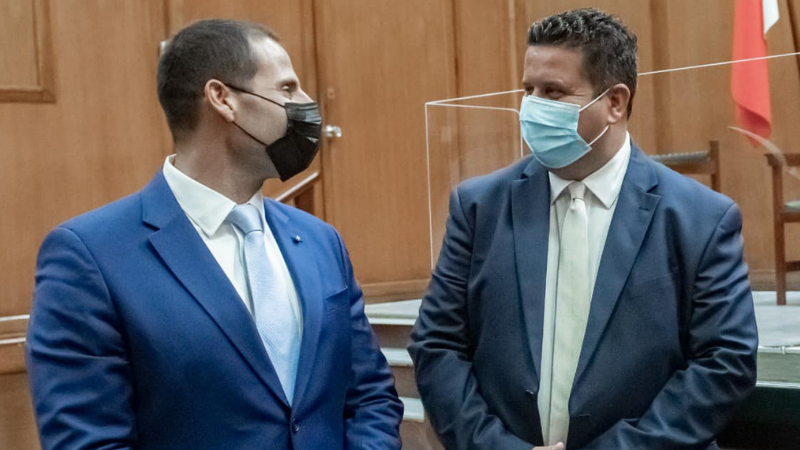Six Maltese newsrooms, along with the Daphne Caruana Galizia Foundation, the IGM and Access Info Europe, have signed a letter urging the government to scrap a legal notice that gives the court’s director-general the discretion to decide which court records are published online and which ones are hidden.
Legal Notice 456, which was officially published on 3 November, grants a State employee handpicked by the justice minister the ability to take such decisions without clear criteria the director-general would be bound to follow, according to legal experts who spoke to The Shift.
In their letter addressed to Prime Minister Robert Abela as well as the justice minister, media organisations expressed their “deep concern” about the ramifications of the new law, urging its revocation.
“The online publication of court judgements fulfils the Maltese state’s Constitutional and ECHR obligation to ensure that all stages of a trial are public, including the judgement. It also serves the public interest of transparency and accountability by delivering access to the public, including, crucially journalists and other social watchdogs,” the statement reads.
“Moreover, the FATF’s greylisting of Malta has obliged the country to step up its control over dubious behaviour. A State that denies journalists and civil society an essential tool – the ability to research judgements – casts doubt on its commitment to transparency.”
Voicing their concern about the justice minister’s power to appoint a chosen candidate to the director-general’s seat, the media organisations further argued that this raises “concerns of conflict of interest and the independence of the role”.
Echoing statements previously made by former European Court of Human Rights judge Giovanni Bonello and lawyer Michael Zammit Maempel, the organisations also pointed out that ‘the right to erasure’ (known more commonly as the right to be forgotten) only applies to commercial search engines, not court cases.
“We accept that there are legitimate circumstances in which a judge or magistrate may order a ban on the publication, such as names of victims in sensitive cases. However, Legal Notice 456 does not include well-defined criteria that precisely establish in which cases the court’s director-general may choose not to publish court judgements online,” the organisations said.
“LN 456 compromises fundamental human rights as it denies ordinary citizens the right to know and inhibits access to information that is in the public interest. It also raises serious questions concerning the separation of powers between the judiciary and executive branches of government”.
The letter was signed by Matthew Caruana Galizia, director of the Daphne Caruana Galizia Foundation, Julian Bonnici, editor-in-chief of Lovin Malta, Neil Camilleri, editor-in-chief at the Malta Independent, Helen Darbishire, the founder and director of Access Info Europe, Herman Grech, editor-in-chief of the Times of Malta, Caroline Muscat, Managing Editor of The Shift, Kevin Papagiorcopulo, editor of Newsbook, Matthew Vella, executive editor of Malta Today, and Matthew Xuereb, president of the IGM.













They won’t listen and they won’t agree.
They have so much to lose and so much hidden that if it comes into the public domain their game is over.
Just look at how the disgraced former P.M. failed to turn up for 3 hearings for the libel case he brought against Mr. Grima.
Call their bluff and they skulk back into the undergrowth where they belong.
Who though can bring them to justice, that remains the $64 billion question?